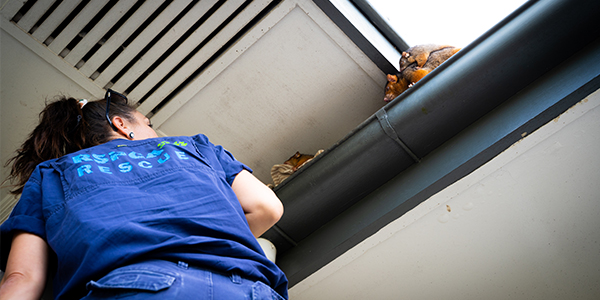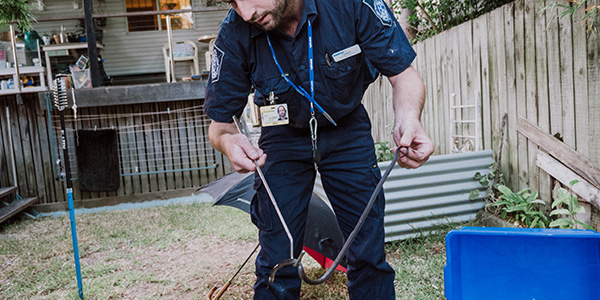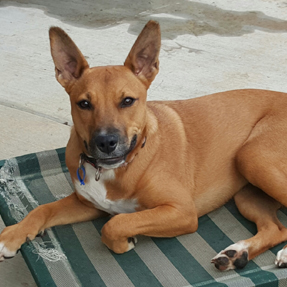RSPCA Animal Rescue
If you come across an injured, sick or orphaned wild animal, follow these simple steps:
Step 1: Safety first
Before you handle the animal, check that the environment is safe, and that it is an animal you can safely handle.
Unless you are competent at snake identification, do not handle any injured snakes. If you have a snake in your backyard and are unsure what to do next, read our blog here for advice or call your local snake catcher.
NEVER HANDLE A BAT UNLESS YOU ARE VACCINATED AGAINST AUSTRALIAN BAT LYSSAVIRUS no matter how small, injured or sick it is. Anyone who handles bats must wear personal protective equipment (PPE). Read more about how to live alongside flying foxes safely here.Step 2: Animal safety
If possible, place the injured animal in a covered box or cat carrier. Provide soft bedding and place the box/carrier in a cool, quiet place.
Try to reduce stress to the animal by minimising handling, movement, light and noise.
Never remove a baby marsupial from a teat – it is best, if possible, to keep the mother with the baby still in the pouch even if the mother is dead, until assessed by a veterinarian.
If you hit an animal with your car, or spot an injured or deceased animal on the roadside, follow our tips here. You could save a life!
Step 3: Get help
Call our Animal Emergency Hotline 1300 ANIMAL (1300 264 625) for advice.
Take the injured animal directly to your nearest veterinarian, RSPCA Wildlife Hospital, or local wildlife carer.
Please also note that you are not permitted by law to keep wildlife, or care for wildlife unless you are a registered wildlife carer.
You may come across injured animals while driving. It’s a good idea to keep a rescue kit in your car so you have some helpful resources at the ready. Read more on what to keep in your car to help wildlife and injured animals here.
Wildlife Advice
- If you’ve found a baby bird and are unsure what to do, we have bird identification information here. Learn more about when you should try to reunite that baby bird with its parents, or when you may need to rescue and seek further assistance.
- Breeding season can mean swooping birds. Read our fact sheet here on what to do if you’ve encountered a swooping magpie or plover in your area.
- Shearwater birds can often be found on the beach, especially if there are a number of them. These migratory birds can sometimes be blown off course. Read more about shearwater birds here.
- If you've encountered possums nesting in your roof or gutters, we've got some helpful tips you can try here to possum proof your home, or how to build your own possum box! Sometimes you might encounter possums with sores on their face, this could be dermatitis. Read more about what to look for to identify possum dermatitis here.











